43 real-world family travel tips that actually work
Editor’s note: This post has been updated with new information.
Family travel is a whole other ballgame. The strategy, gear, planning, expectations and number of times you may answer “Are we there yet?” make it an entirely different sport than solo or adults-only trips.
While traveling with kids is arguably quite different than taking a trip without a child (notice we didn’t call it a “vacation” with kids), it doesn’t have to be intimidating. In fact, there are countless ways to experience memorable moments and make lifelong memories with your kids, whether you hike the mountains of Machu Picchu or ride the newest coaster at Disney World.
Related: TPG’s 10 top family vacation destinations
To make the journey a little easier, we’ve compiled our 43 favorite family travel tips. Whether you’re traveling with infants, teens or some of both, these tried-and-true tips are bound to ease travel headaches and ensure your family travels are as fun and carefree as possible.
Travel tips for infants and toddlers
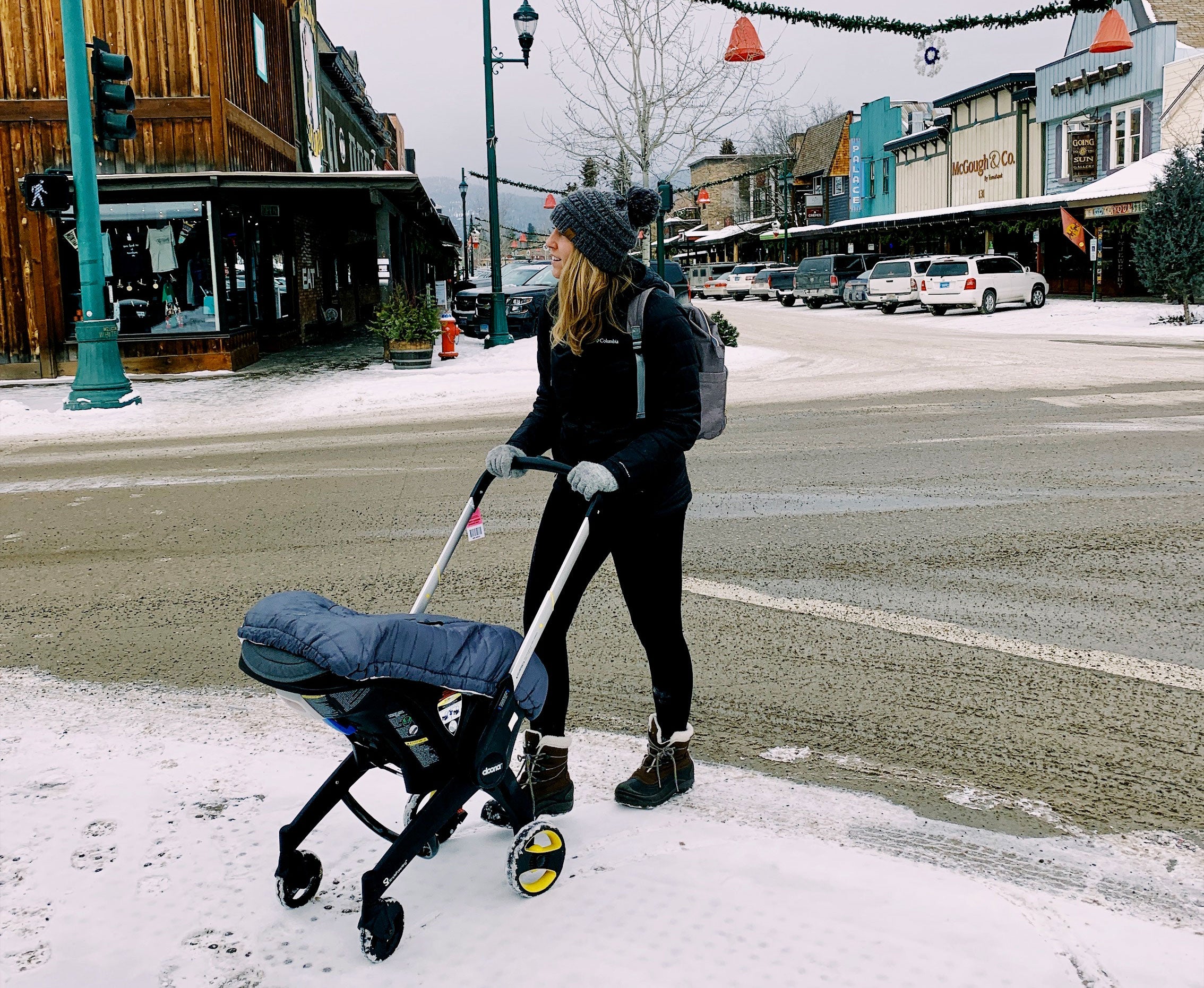
Having a baby does not mean the end of your time as a traveler. It may cause you to temporarily pause your adventures, and it will certainly change how you travel. But traveling with a baby is still worth the effort.
While it’s true that your baby may not remember the details of your trips during the first few years, quality time together is invaluable. You will always remember their first big vacations.
Some travel is often easier with a small, snuggly baby than with a growing, active toddler, so don’t be afraid to plan something while your little one is still young.
Use the right travel stroller
If you plan on traveling with a stroller, you want one that is lightweight and easy to maneuver through the airport or rough terrain, if necessary, once you reach your destination.
Related: These are the 13 best travel strollers for your next trip
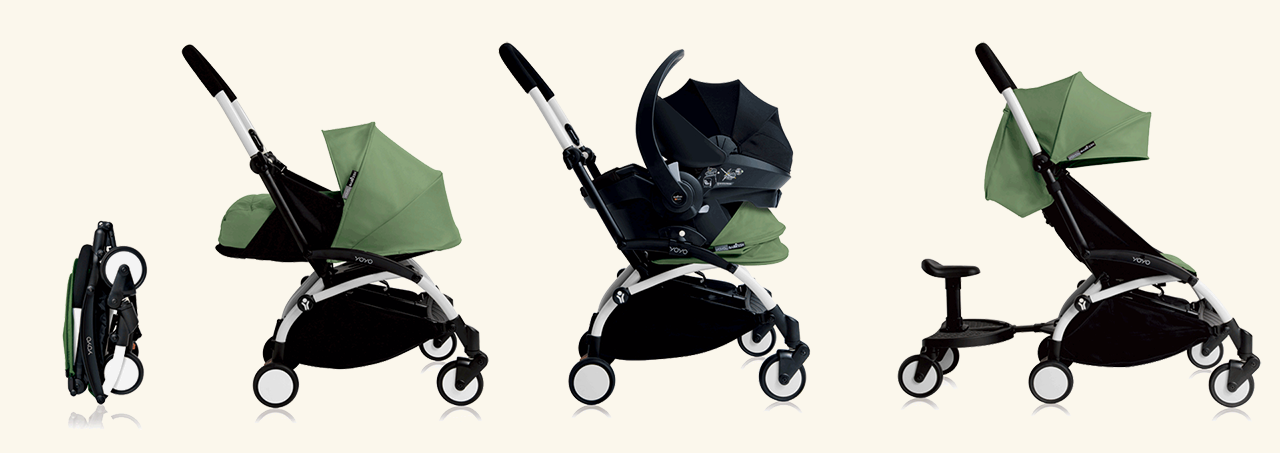
If you choose to gate-check your stroller, foldability isn’t as important. Instead, prioritize protecting your stroller from dirt and damage by investing in a stroller with a bag. For long layovers, you can request to have your gate-checked stroller delivered to you between flights so that your baby has a safe and comfortable place to rest while you navigate the airport. Just ask the gate agent when you check your stroller.
Baby-wear
To keep your hands free and your baby snuggled, you may choose to baby-wear through the airport or on a flight (though most airlines don’t allow it during takeoff and landing).
The Transportation Security Administration rules state that infants may be carried in a sling or carrier while going through the walk-through metal detector, so you shouldn’t have to remove them for security — at least, according to the rules.
If it’s not too hot, baby carriers and slings also come in handy at theme parks, which allow baby-wearing on many family-friendly attractions. Just be sure you ask about safety restrictions before you ride.
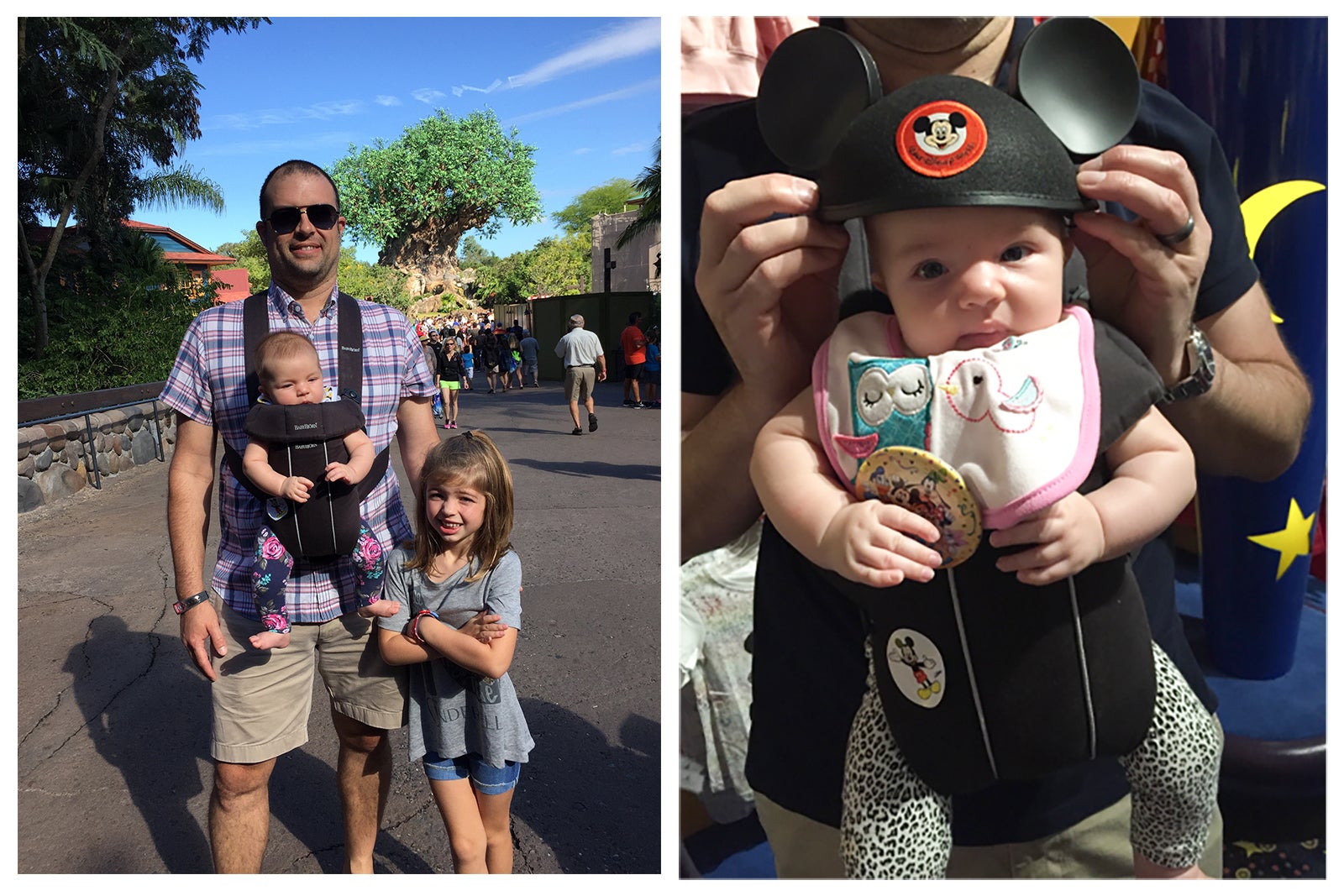
Breastfeeding mamas should consider carriers that allow easy access for on-the-go nursing, such as those in sling or wrap styles.
Consider a Doona
If you don’t want to lug both a car seat and a stroller and your baby weighs between 4 and 35 pounds, you’re in luck: The Doona can serve the function of both. It transforms very easily from a stroller to a car seat and back again, all while your baby is strapped in.
Because of their convenience, Doonas are great for flights, cab rides, Uber rides and, frankly, any part of your busy life with a baby.
Think twice about flying with a lap infant
Most airlines allow children younger than 2 to fly as lap infants instead of purchasing separate seats for them.
The cost savings can be hard to pass up, and during those early months when the little one is nursing or sleeping a lot, it can be the easiest way to go. However, if your baby is fussy or you are flying solo, you may feel more comfortable keeping them in their car seat. If they can sleep through anything or you have someone you can split baby-care duties with, you may have more success flying with a lap infant.
If you do purchase a seat for your baby, there are dozens of portable car seats out there that are much easier to travel with than the bulky car seat you may have at home.
Get a car seat just for travel
The Cosco Scenera is a perennial favorite when it comes to travel car seats. At around 10 pounds and only $50 to $60, this car seat is a winner for travel when you need something easy and affordable. It’s rated for rear-facing little ones weighing between 5 and 40 pounds or forward-facing kiddos weighing 22 to 40 pounds.
Another model to consider is the WAYB Pico portable car seat, which was recommended by several TPG readers.
Use a car seat on the plane
Every kid is different, but if your little one sleeps well in a car seat in the car, they may do the same on a plane. If your kids are generally comfortable in car seats and have their own seat assignments on the plane, consider bringing the car seat on board for a secure flight experience.

Related: Car seats that are airline approved
Bring a Boppy pillow if you’re holding an infant
TPG’s senior director of engineering Mitchell Stoutin recommended using a Boppy nursing pillow for long flights with an infant. In addition to being handy for nursing, it gives your baby a comfortable place to rest. He also advised stashing your Boppy in a vacuum Ziploc bag to save space when not in use.
Sign your kids up for frequent flyer programs
Once you make the transition to buying your child a seat — either because they turn 2 or because you think having a separate seat will work best for your family — sign them up for a frequent flyer account and let the miles start rolling in.
No minimum age requirements exist for kids, so enroll them while they’re young to maximize their earnings.
Related: Earning frequent flyer miles for your kids just got a little easier
Board last
Most airlines let families with young children board early in the process, but as long as your family has assigned seats, you don’t need to worry about rushing to board before others.
Instead, have one parent get all the gear ready and board first while the other waits as long as possible before bringing the baby on board. This will help minimize the amount of time you have your little one in tight quarters, reducing the likelihood of a meltdown or further disrupting their schedule.
Pack your carry-on strategically
Think about everything you may need to easily access for yourself and your baby before organizing your carry-on. That way, you don’t forget any of your must-have items or struggle to find them while on board.
Consider packing food, diapers and extra outfits for at least twice as long as you think you’ll need them for your little one while in transit. Don’t forget to also bring clothes, snacks and drinks for yourself so you have everything you need.
As a general rule of thumb, it’s a good idea to have enough essentials to survive at least 24 hours off of what you bring on board, as you never know what is going to happen.
Bring large Ziploc bags and black trash sacks
Avoid packing a suitcase without tossing in a few Ziploc bags, grocery bags or trash bags. They can be used to stash snacks and store wet or dirty clothing.
As TPG executive editor Scott Mayerowitz shared, large black garbage bags can also work as blackout shades in a pinch.
Related: The best family beach vacation destinations to kick off summer
Find a space in your hotel for the baby to sleep
In the best-case scenario, you’ll have accommodations with at least two bedrooms so your baby has a dark, quiet place to sleep while you relax without disturbing them. However, there are times when having multiple rooms isn’t possible.
If you only have one bedroom, try putting a crib in a hotel closet or bathroom to achieve the same result.
Travel with gear that will help your baby sleep in the hotel
When it’s time for the baby to sleep, there are numerous sleep tents, shades and white noise machines to choose from. Here are a few of our most trusted options:
- SlumberPod.
- SnoozeShade for Pack ‘n Play.
- BabyBjörn Travel Crib Light.
- White Noise Lite app for iOS and Android.
- Hatch Rest Nightlight and Sound Machine.
- Portable Travel Window Blackout Curtain.
You don’t always need to buy new gear for a successful trip, though. One reader suggested using painter’s tape to cover outlets as a quick, cost-effective way to baby-proof your hotel room.
Related: These are the best New York City hotels for families to check out
Have diapers and essentials shipped to your final destination
While you need plenty on hand for that first day or two, you can purchase what you need from Amazon and have it shipped directly to your destination instead of traveling with an entire week’s worth of needed items like diapers and wipes.
Alternatively, you can use a service like Shipt or Instacart to have essentials delivered to your hotel or home rental after you arrive.
Pack the snacks
This is true for all ages but especially applies when traveling with infants.
Don’t ever assume anything baby-appropriate will be available while you are in transit. The last thing you want is the stress of scrambling to find what you need at the last minute.
To avoid this potential headache, pack enough formula, snacks and more so you have whatever your little one may need to stay happy and content.
Related: How to pack — and prepare — for travel with a baby
Travel tips for preschoolers
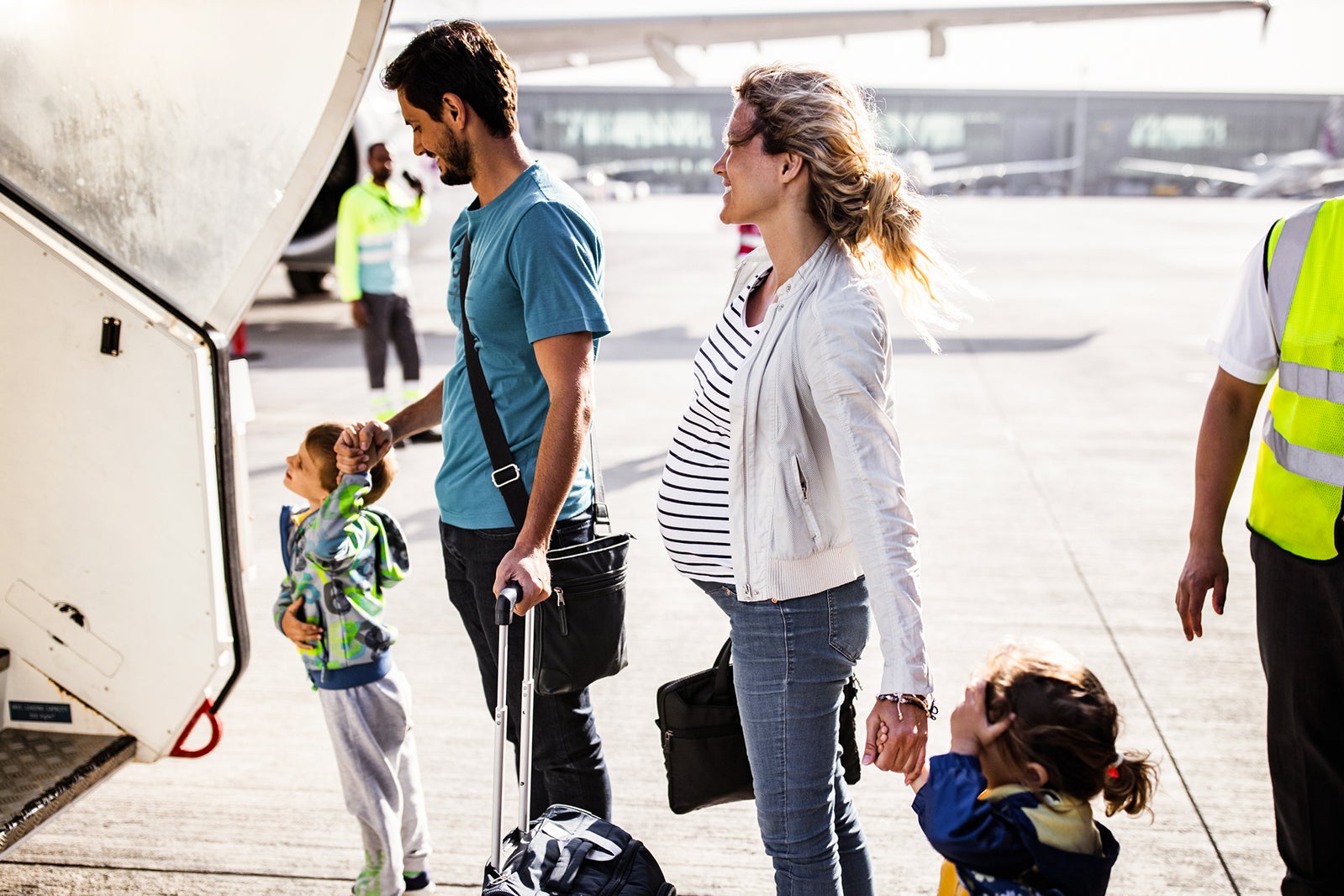
The good news is that when kids are old enough for preschool, they don’t need quite as much sleeping and transportation gear.
With preschoolers, you’ll want to pay particular attention to toys and activities that will keep them entertained, night lights that will help keep the “scaries” away and a few other important travel essentials.
Bring mess-free toys
When choosing toys to pack for a flight or road trip, keep in mind that you don’t want anything that will create a mess or get lost easily, such as Legos or slime.
For mess-free coloring, we love Crayola Color Wonder Markers and coloring pages. If you’re taking a long flight or road trip, consider suction toys that can stick to a car or airplane window.
Related: 14 mistakes parents make when traveling with kids
Pack hidden toys to reveal during your trip
A surefire way to keep your child content for extended periods of time is to hide some toys until your travel day arrives so they feel new and exciting. You can even wrap them up or dole them out periodically throughout your trip — we recommend packing one toy for each hour of a flight — to add an element of surprise.
Try visiting a dollar store or dollar aisle in a store to dial up the surprise factor. Trust us, the $5 investment will pay off in spades.
Related: Your guide to flying with kids of every age
Consider an inflatable booster seat
If your child has graduated to a booster seat (congrats!), there are inflatable and fold-flat booster seats available that are easier to haul when traveling by car.
While there are several options currently on the market, the BubbleBum inflatable booster seat is a TPG reader favorite.
Use a stroller
Should you find yourself covering lots of miles on your trip, having a stroller can come in handy, even if you don’t normally use one at home.
For example, at a large theme park like Disney World, you may find yourself needing a stroller until your kid is 6, 7 or even 8 years old if you are moving quickly and want them to easily keep up (or if you know they will fall asleep before you are ready to call it a night). This may mean renting one when you get there, though you may prefer to have your own if you’re doing more than spending time at Disney.
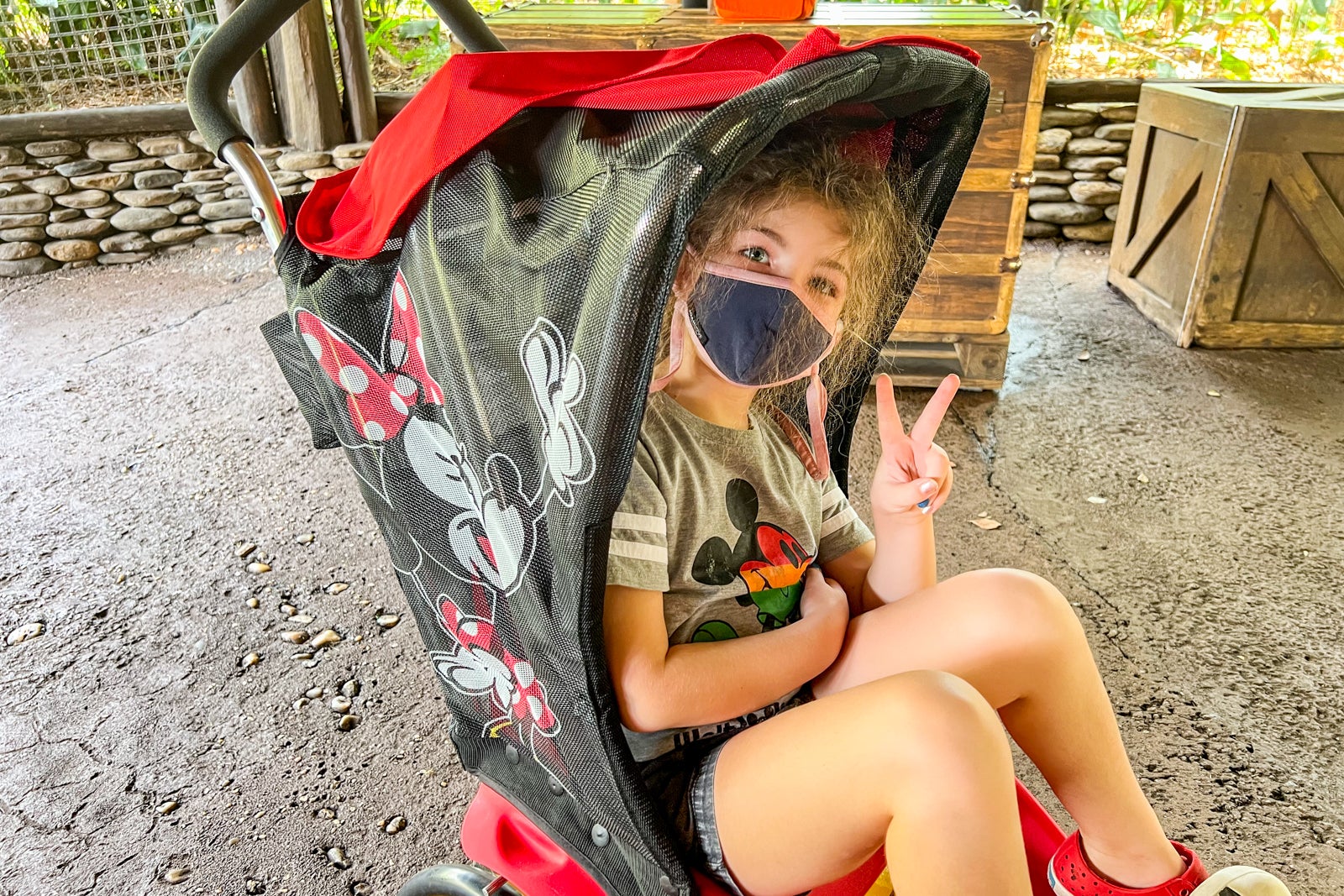
Get stroller straps
Because it isn’t socially acceptable to AirTag children (though they do come in handy for finding lost luggage), we instead suggest getting stroller straps that bigger kids can hold on to while you push younger children in the stroller. We’re particularly fond of the Tagalong Stroller Accessory.
Preschedule car service from the airport
If you need car seats or want to be sure you have a ride waiting for you when you land, Uber and Lyft now both have options for prescheduling a ride if you need one.
While the best service depends on where you are going, one option to try is Blacklane. Consider having your driver meet you inside at baggage claim if you’re traveling with a lot of gear.
Pack a night light
For kids who are afraid of the dark, night lights may come in handy. This affordable nightlight is small, sleek and easy to pack.
If you are going on a cruise and don’t have access to traditional power outlets, TPG senior travel editor Erica Silverstein suggests bringing along battery-operated tea lights instead.
Travel somewhere with a kids club
A magical milestone in travel is when your child turns 3 and is potty trained, as this unlocks access to a variety of kids clubs.
Whether you’re on a Disney cruise (like the new Disney Wish cruise ship, pictured below) or at a resort with a kids club (some of which are free to use), children’s clubs are great for preschoolers.
By going somewhere that caters to younger children, you’ll be able to get a well-deserved break while the kiddos are taken care of.

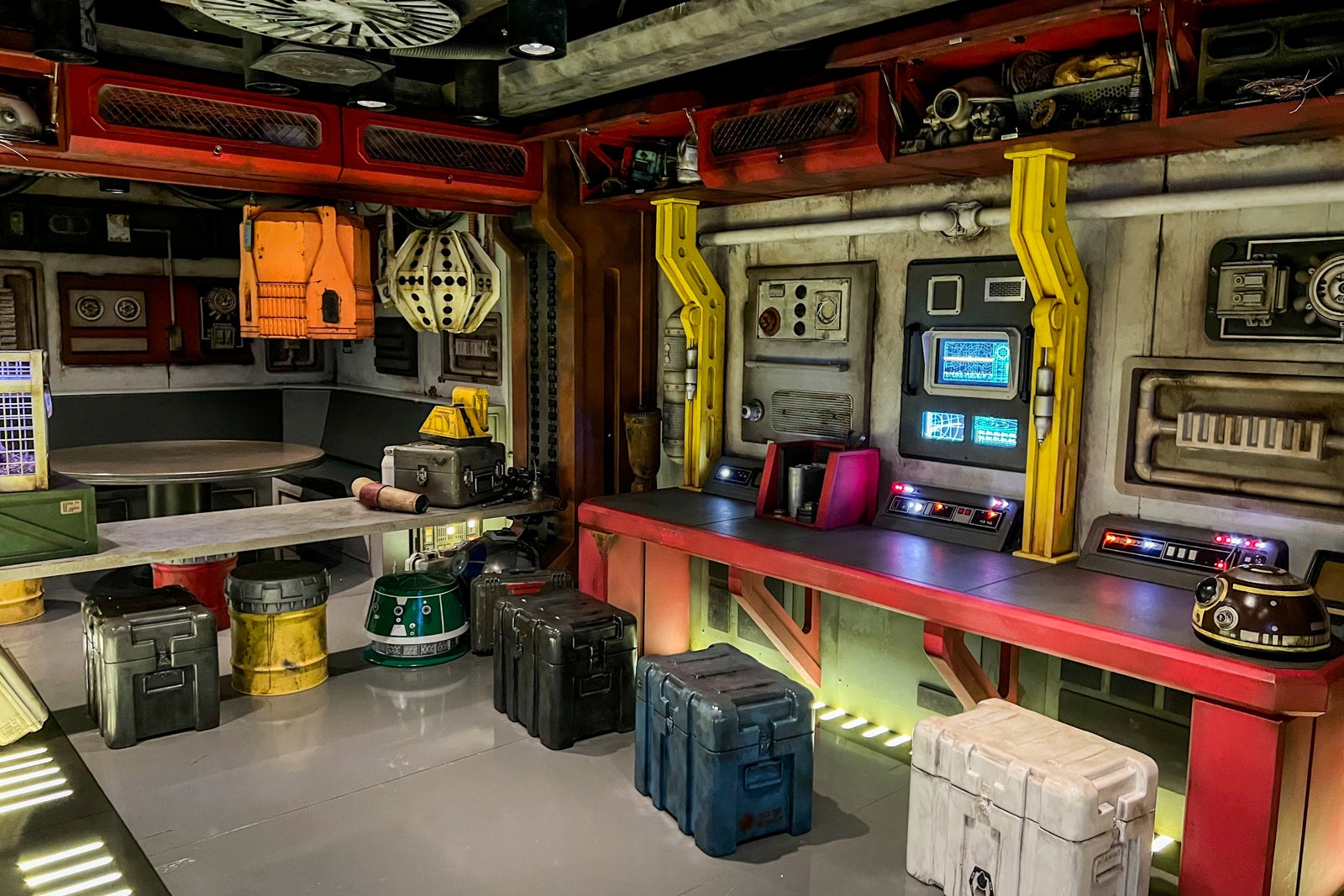
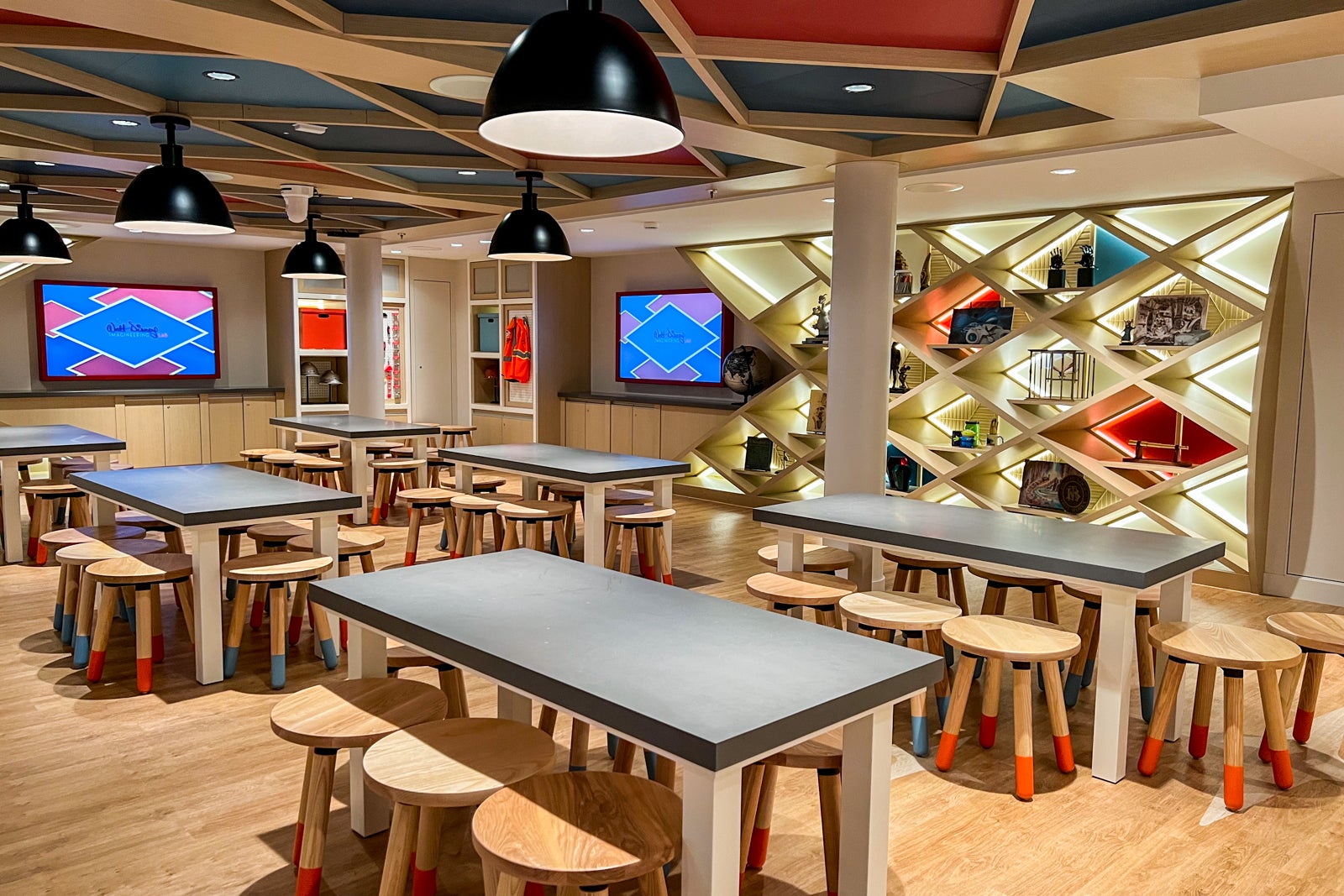
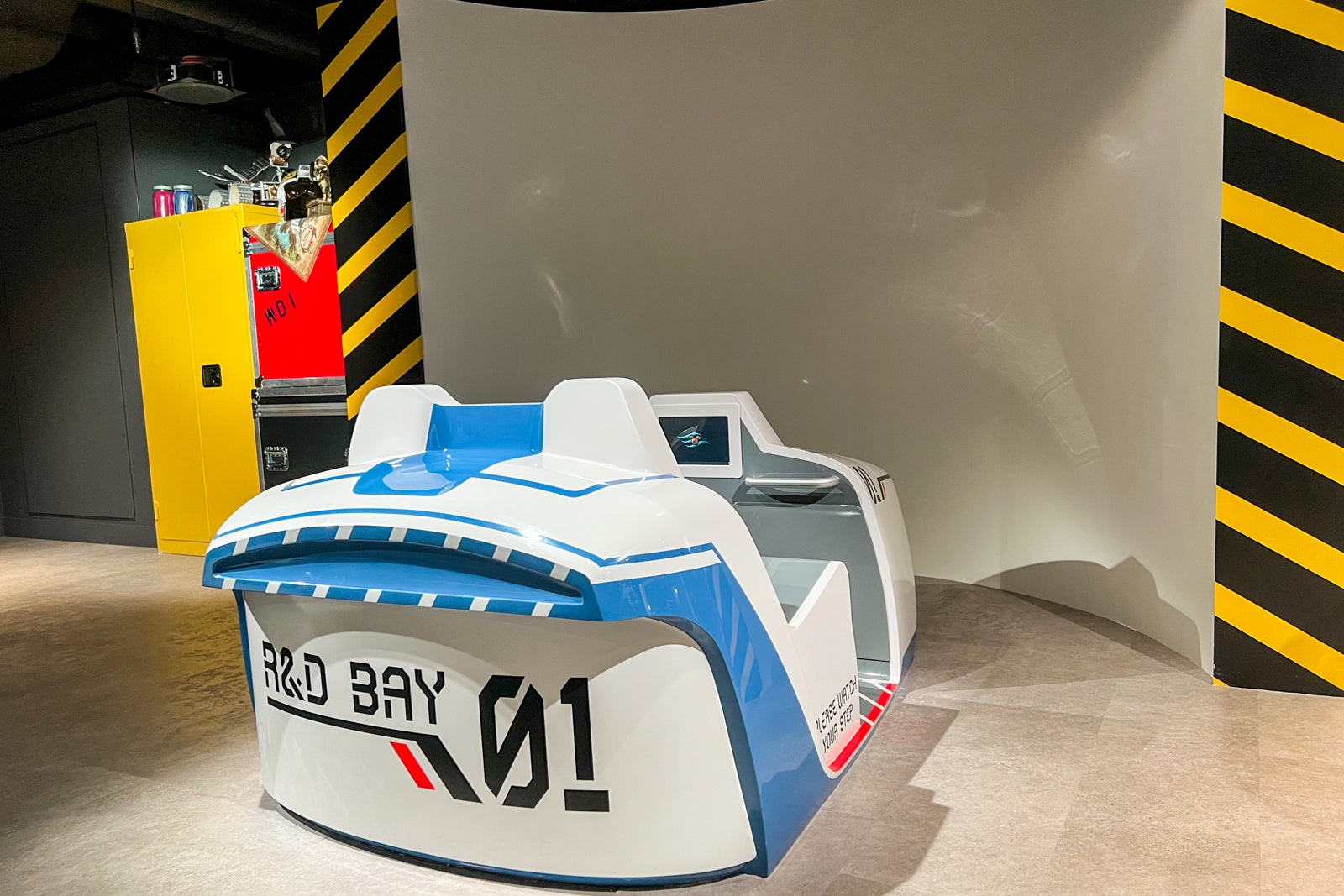
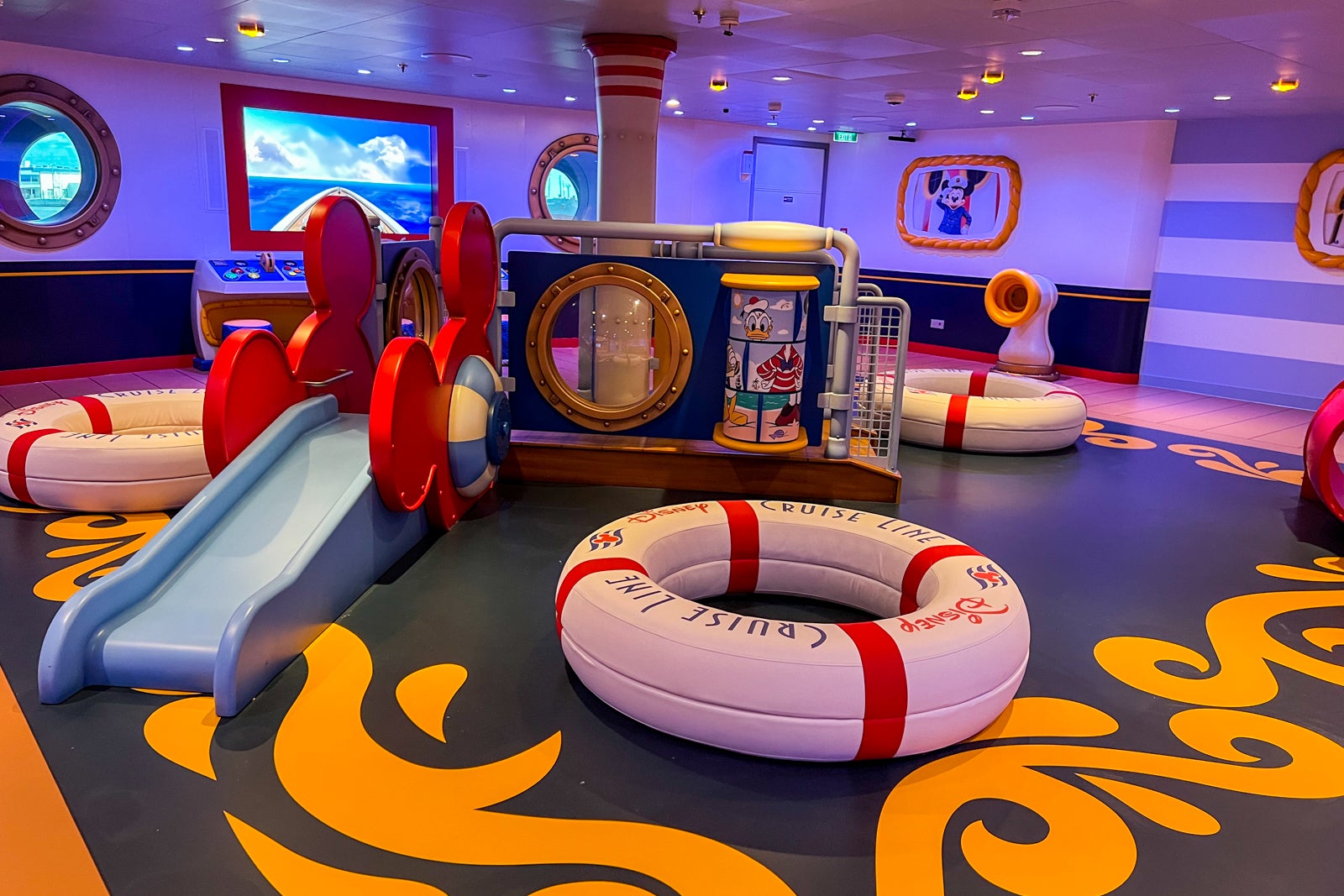
Plan down days and afternoon rest
Even if your preschooler has dropped daily naps at home, it’s still smart to build some downtime into your vacation schedule. This is especially important because it’s likely that their sleep schedule will be a little off while you’re traveling and that your vacation will be more action-packed than what they’re used to at home.
To help your overtired kid adjust, plan a relaxing pool day or take an afternoon break in your hotel room to keep crankiness at bay.
Travel tips for elementary-age kids
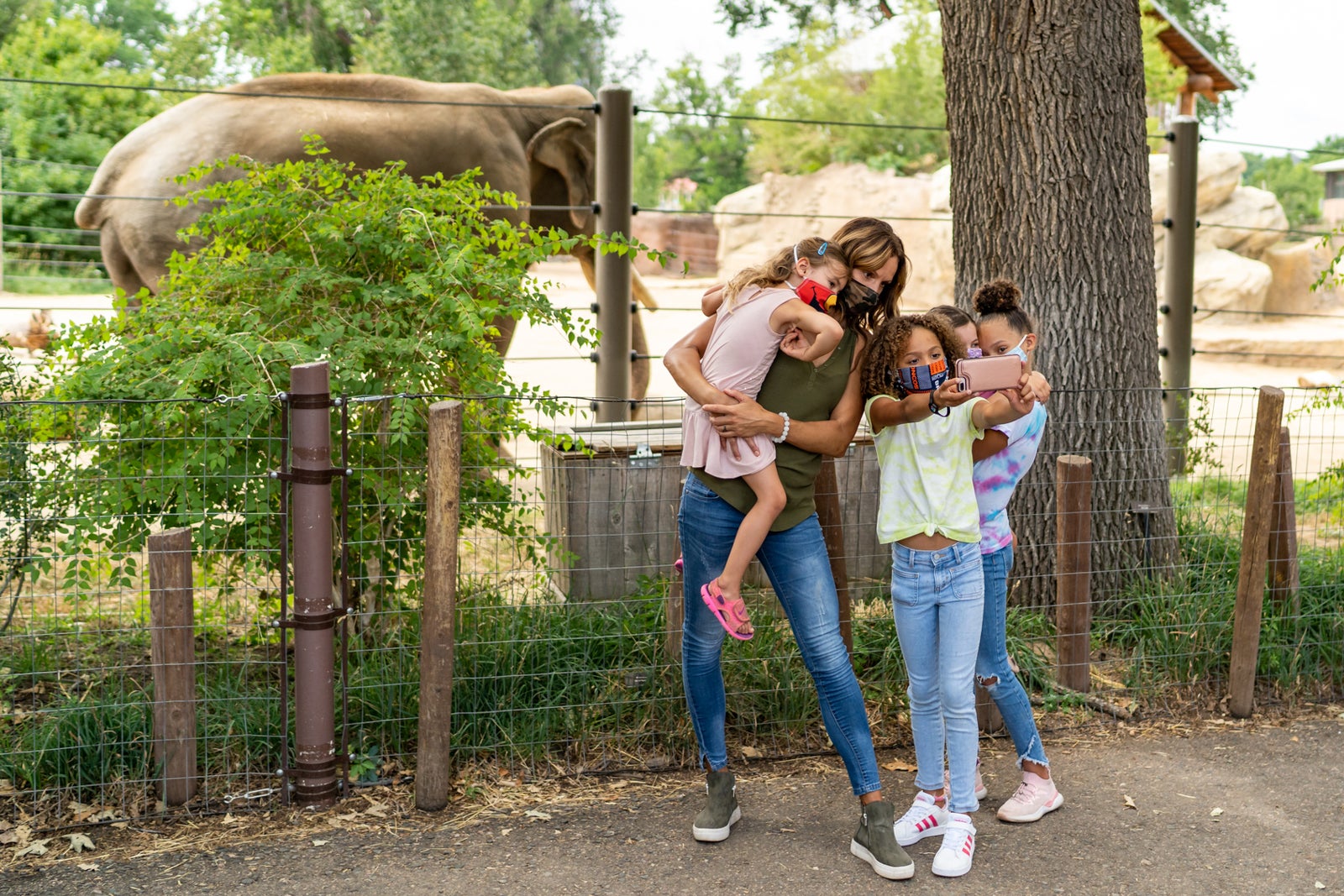
As kids get older, they can do more while on vacation with less help, but the tried-and-true tricks for keeping them entertained may no longer work.
Because their brains are developing and becoming more complex, elementary-age kids will need to have access to more activities while they’re away from home. As a result, you’ll need to adjust your strategy for vacations so they continue to have a good time.
Use packing cubes for the family
This tip applies to all age groups but can be especially helpful when your child starts taking more of an interest in choosing their own clothes. By relying on packing cubes, you can keep clothing for every member of your family organized while saving space.
If you decide to use packing cubes, there are a couple of good methods to choose from.
You can have a packing cube for each day of your trip and put your family’s clothing for each day in one cube. This works well if you will be making multiple stops and don’t want to pack and unpack everything.
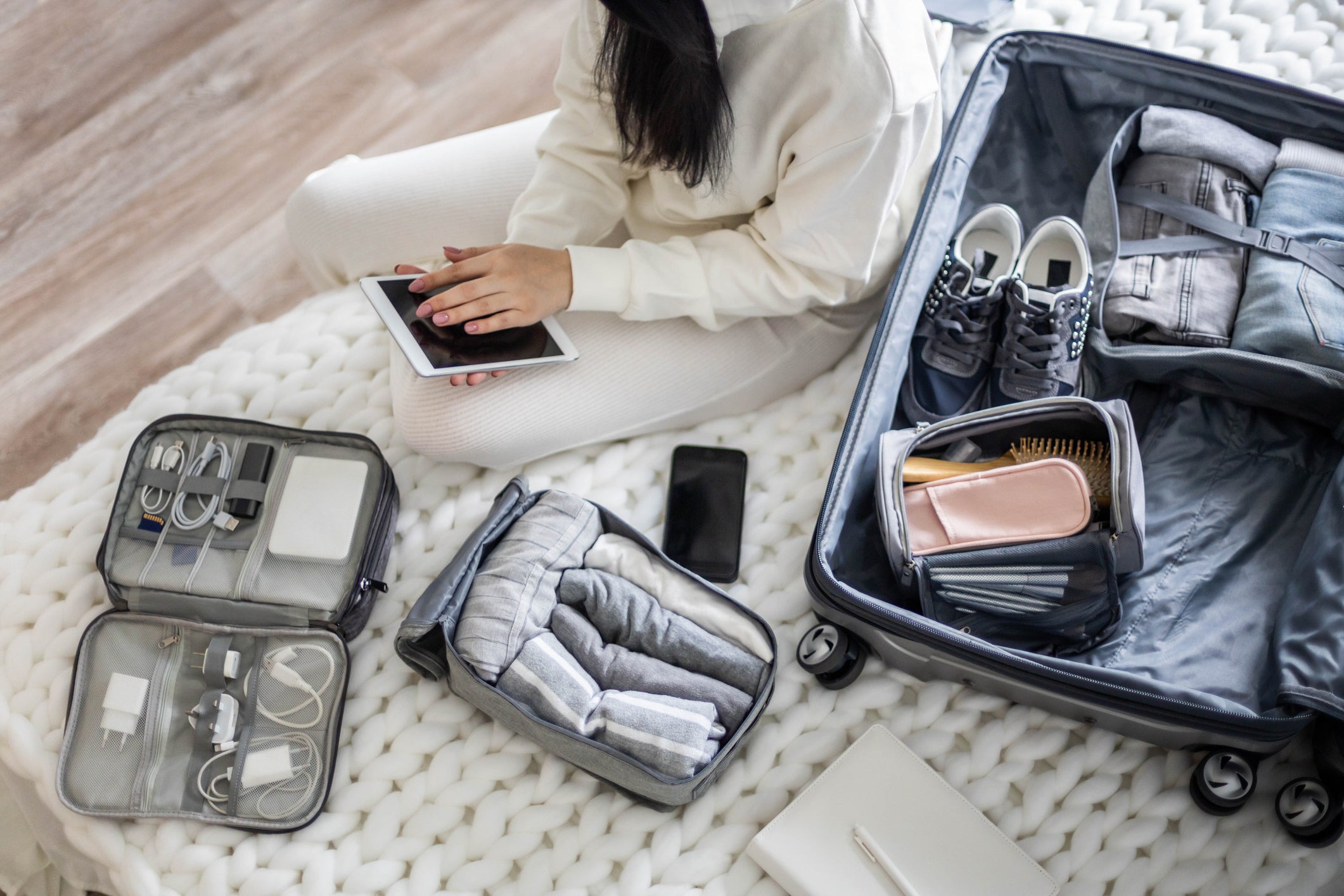
You could also pack each family member’s clothing in a separate packing cube, which is helpful when you are encouraging kids to get dressed on their own and choose their own outfits.
Leave 1 day free in the schedule
We’ve already covered the importance of leaving some flex time in the afternoons, but if you are traveling for more than a long weekend, we highly recommend leaving an entire day unscheduled. That way, the kids can either rest and chill or you have the ability to say yes to something they spot along the way.
Depending on your child’s interests, you may want to use your free day for activities like splashing around at a water park, checking out some animals at a zoo, enjoying an epic ice cream-tasting adventure or spending more time at the kids club.
The key is to leave this day flexible so you can cater some activities to what your kid is enjoying the most.

Take advantage of your hotel’s club lounge
Club access can be invaluable when traveling with kids.
If you stay in a club-level room at a hotel, you’ll often have daily access to breakfast, snacks and drinks. An added bonus is that the club can serve as a gathering spot for enjoying more time (and often gorgeous views) with them.
Related: Can you use a World of Hyatt club lounge access award for someone else?
Plan trips with another family
This is the age where having other kids around really starts to matter.
If at all possible, try planning the trip to at least overlap with time spent with cousins or friends. Doing so will virtually guarantee the kids will have a better time, which means you will, too.
For these types of trips, you may want to look into finding a good vacation home rental.
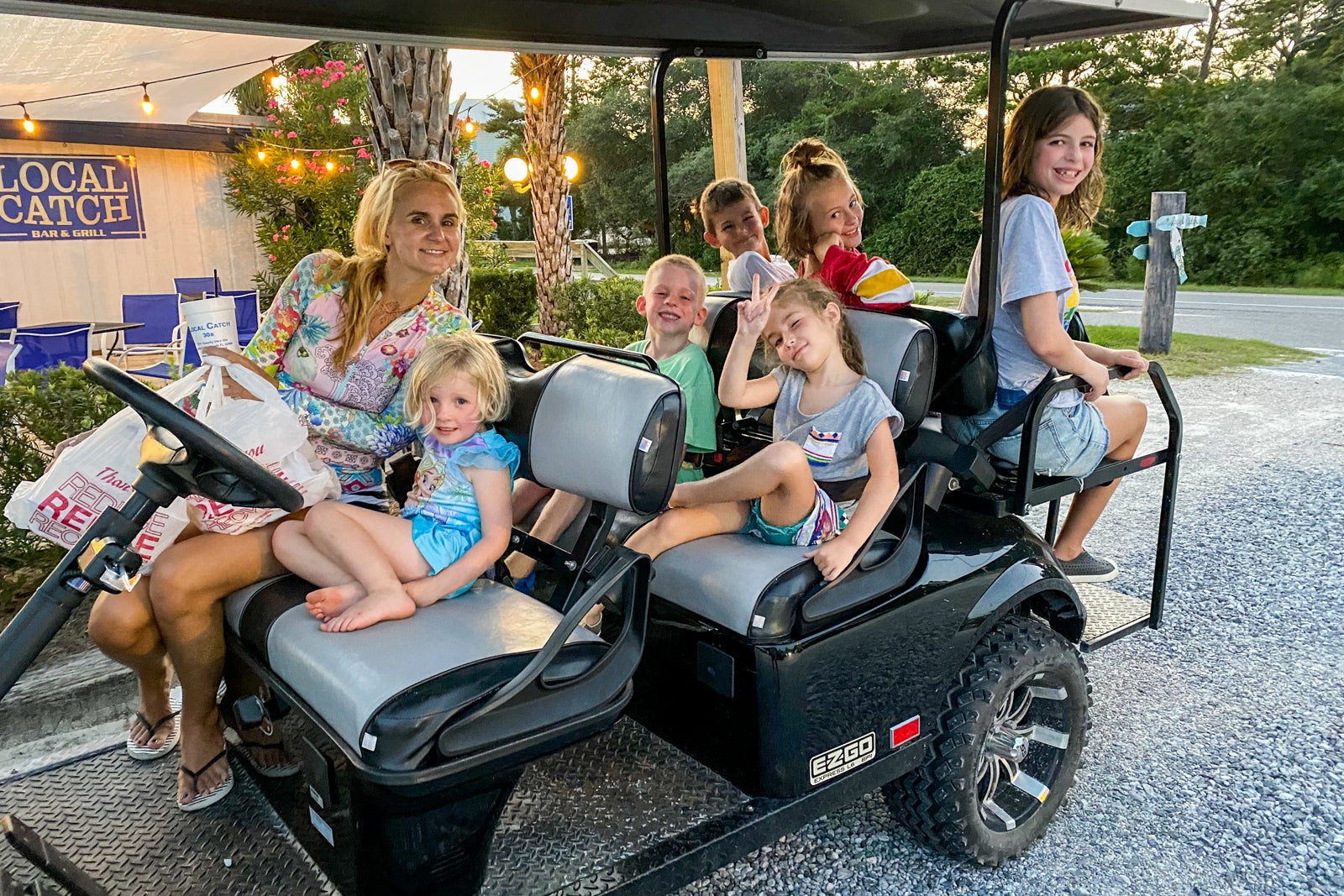
Related: Why the best big family vacation may be skiing
Travel tips for tweens and teens

Traveling with tweens and teens is completely different than traveling with younger kids — something you probably know all too well if you are currently living with them.
At this age, kids are well on their way toward becoming full-fledged adults. As a result, they deserve a taste of the space, privacy and independence that comes along with adulthood.
Build an activity bag
It’s easy to assume the phone will do the trick, but TPG editor Kristy Tolley is a proponent of custom activity bags to keep kids (including older ones) occupied on long trips.
For your activity bag, consider anything from snacks to quiet toys to new games for their Nintendo Switch to art supplies — whatever will keep them entertained while you get to your final destination.
Double-check downloaded content
Wi-Fi on airplanes can be quite finicky. Even if you pay for it, there’s never a guarantee it’ll work for the entirety of your flight. Because of this, download movies, music, games and more to your device (or your child’s) before your trip.
When downloading movies or TV shows, turn to multiple sources like Netflix, Disney+ and Apple. That way, if you run into issues with one provider, you still have content from the others.
Also, remember that messaging others is free on many flights, so be sure your teen has the airline app downloaded if you want them to be able to keep using services such as iMessage while in the air.
Enroll your child in TSA PreCheck
Until they turn 13, kids traveling with a parent or guardian with TSA PreCheck will be allowed to go through the expedited security line even if they themselves don’t have TSA PreCheck.
Even after they turn 13, kids 17 and younger can typically use the TSA PreCheck lines with their parent or guardian as long as the teen has the indicator on their boarding pass.
If you have a credit card that reimburses fees for TSA PreCheck, you can recoup the cost of your child’s application. Note that Clear continues to work to bring kids through until they turn 18.
Related: Why you should get TSA PreCheck and Clear — and how you can save on both
Consider connecting rooms
The days of squeezing two or three kids into one queen-size bed are probably long gone once they reach their teenage years. Not to mention, trying to have the whole family use one bathroom is an ordeal you likely won’t want to go through.
To keep the peace, consider reserving connecting hotel rooms.
With connecting rooms, you’ll have double the beds, bathrooms and storage space. Plus, teens and tweens will have the space and privacy they need without you being too far away to keep an eye on them.
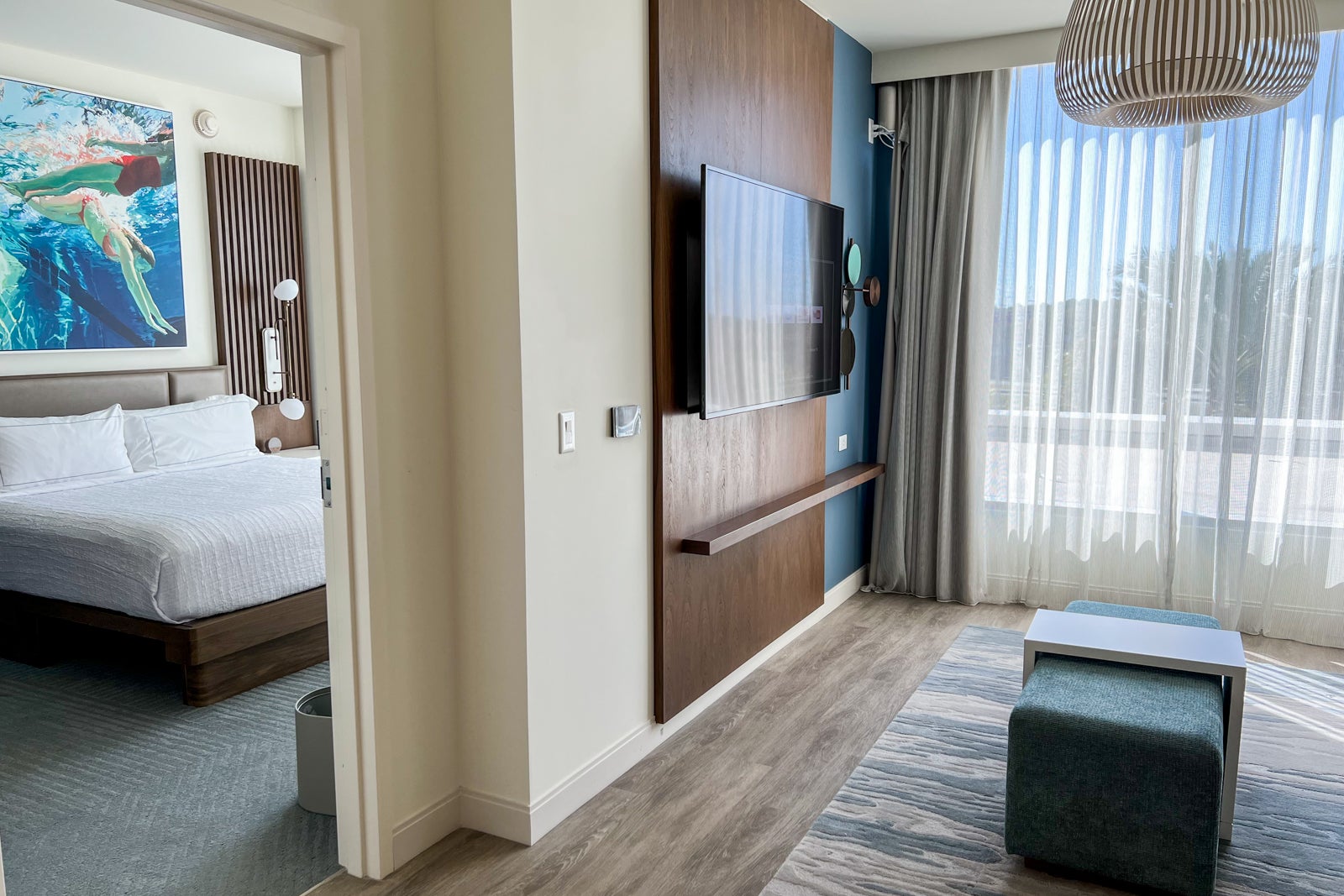
Related: Big news for families: Hilton to guarantee adjoining rooms with ‘Confirmed Connecting Rooms’
Let kids choose a few activities (or plan the whole day)
At this age, kids are not just along for the ride. Give them some input (and independence) by allowing them to help plan your trip. Odds are they’ll be more engaged by being involved in the planning.
Bring a friend
While planning trips with other families is a good strategy with elementary-age kids, by the time kids are teens, just bringing along one of their friends could be sufficient.
To keep the costs down, consider using an airline companion certificate to bring along that friend without spending extra.
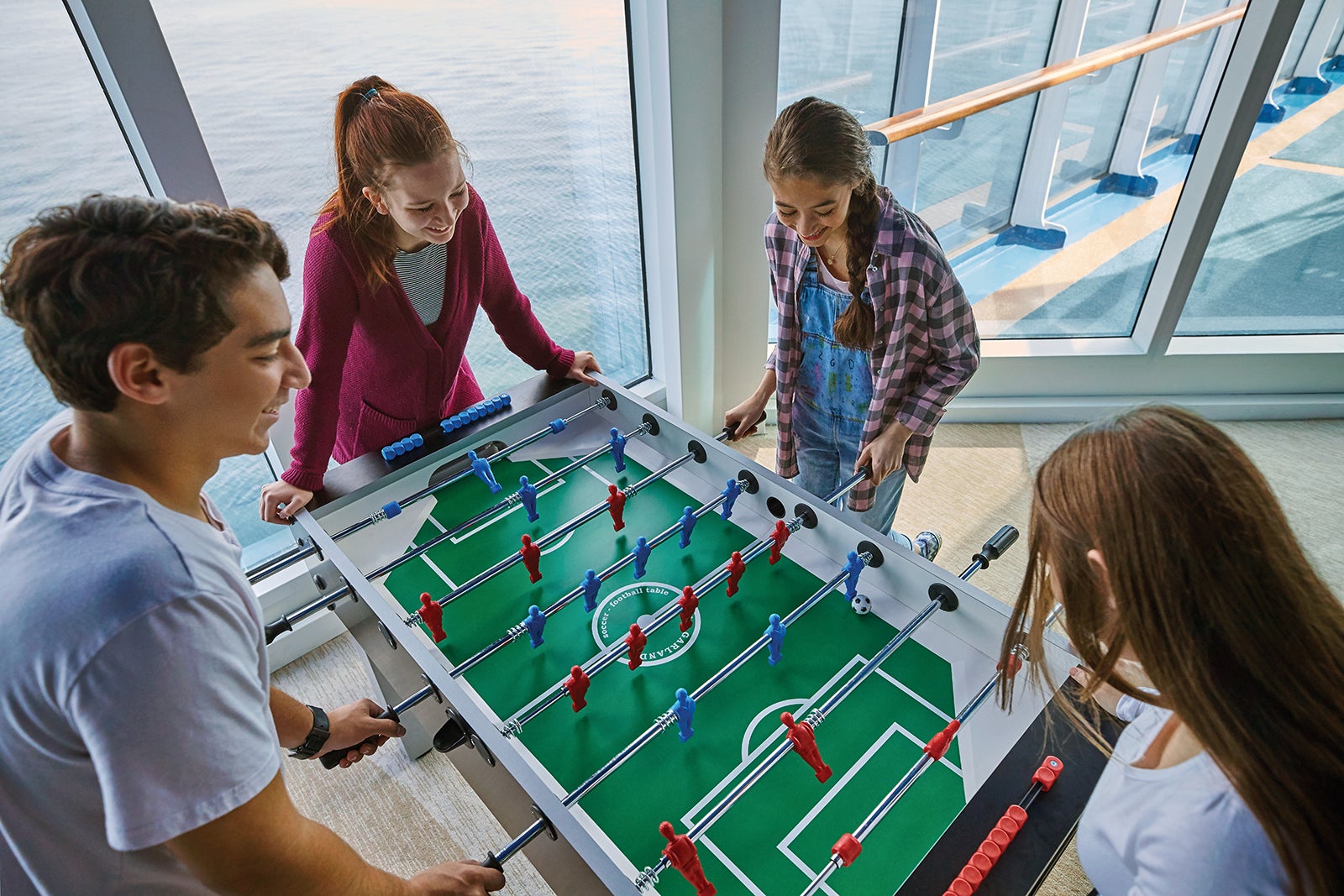
Go somewhere with a teens club
If you are visiting a resort or destination where you may be going light on activities, lean into places that have a space just for teens.
Cruise ships are fantastic when it comes to this, as they often have kid-focused spaces divided into pretty distinct age ranges. For example, Disney Cruise Line has a club for kids ages 3 to 12, another for those between 11 and 14 and then one for teens ages 14 to 17.
By taking advantage of clubs that are broken up into designated age groups, your teen can have plenty of fun without the annoyance of hanging out with younger kids.

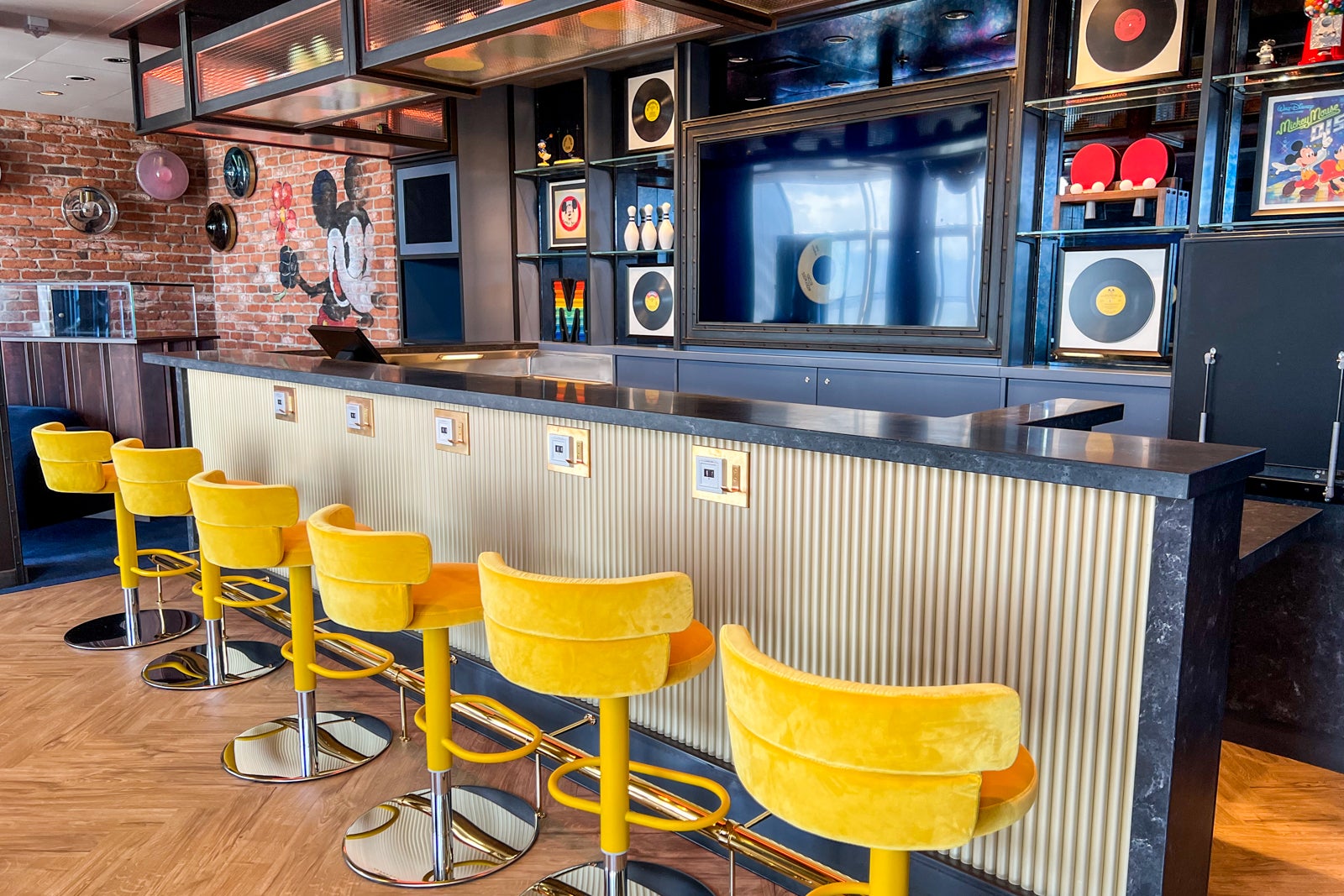
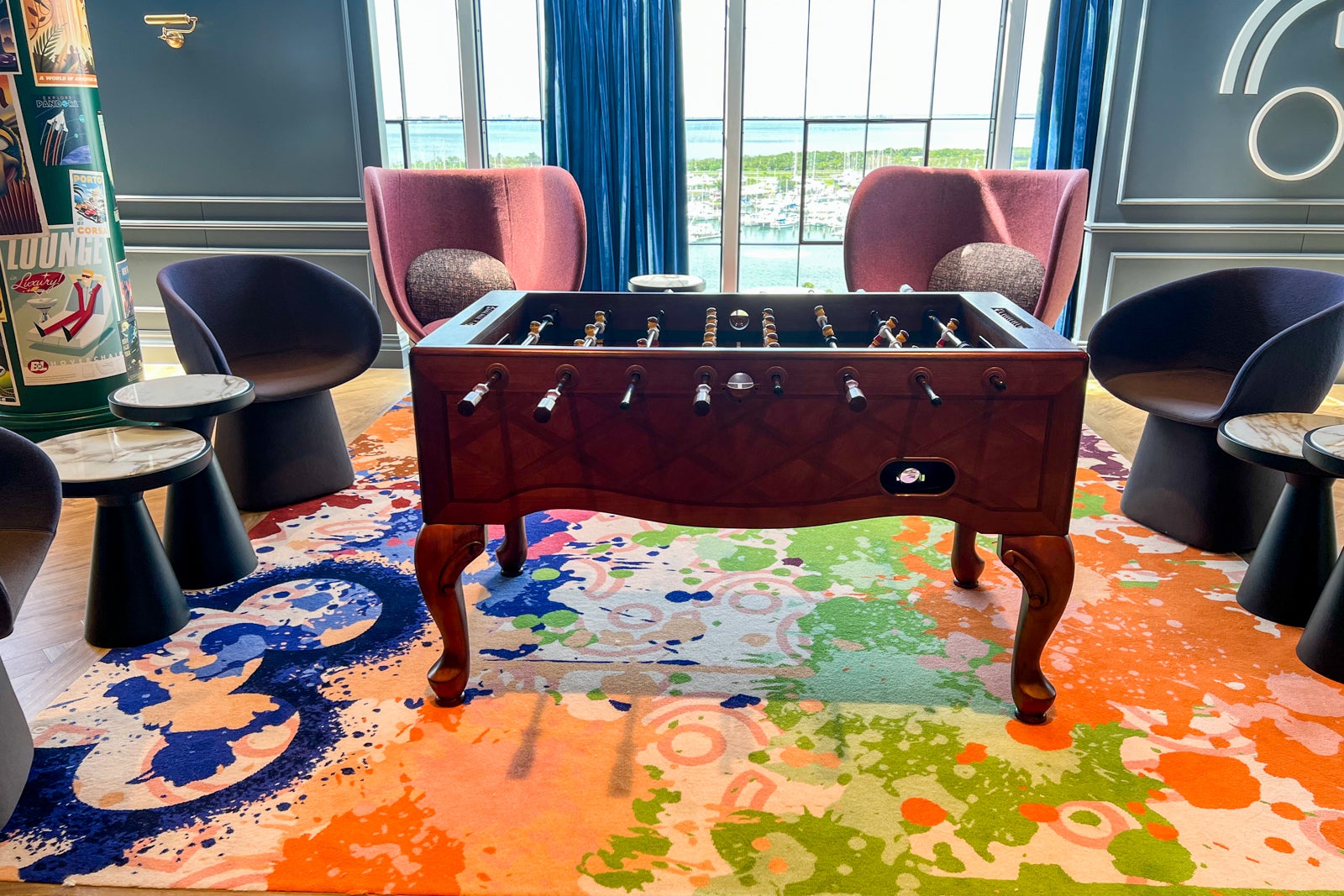

Related: Child turning 18? Here’s everything you need to know before the next time they travel
General family travel tips
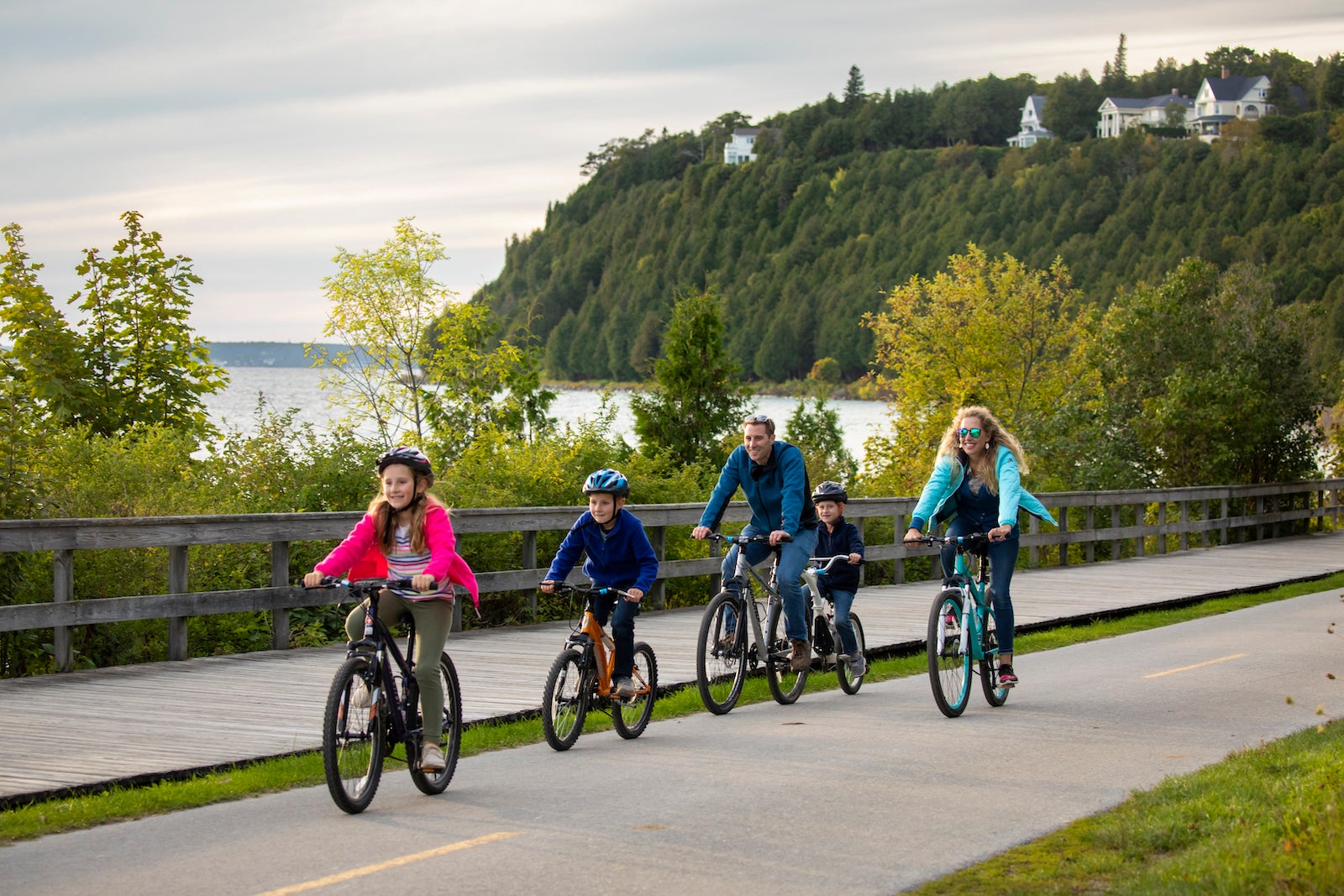
Some family travel tips transcend age groups.
Regardless of how old your kids are, where you’re traveling or how you’re getting to your vacation destination, there are a few tips you’ll always want to keep top of mind.
Utilize airport lounges
Airport lounges are becoming more and more kid-friendly, as they offer dedicated family rooms with toys and kids shows on TV, plus food that will please picky eaters. Additionally, if you have a long layover or are dealing with flight delays or cancellations, you’ll be much more comfortable waiting in a lounge instead of at your gate.
You can purchase a day pass to many lounges but may be able to get yourself and your family in for free with certain credit cards or airline status. For example, The Platinum Card® from American Express grants the cardmember and one guest complimentary access to Priority Pass lounges and access to Centurion and Escape lounges, though complimentary guest access depends on how much you spend annually.

Related: Best credit cards for airport lounge access
Upgrade to a suite
Similar to springing for connecting rooms, upgrading to a suite will buy you additional space and, sometimes, a pullout sofa that adds another sleeping option.

You’ll also have more room for your family’s belongings and areas for relaxing and dining so your kids don’t spend all their time jumping, eating and lounging on the beds.
Check for reciprocal zoo and museum memberships
If you have a membership to your local zoo or museum, you may be able to use reciprocal benefits for free or discounted entry to other zoos and museums that you can visit on vacation.
This information is usually available on your zoo or museum’s website, but you can also check lists on the Association of Zoos & Aquariums’ page about reciprocal admissions or on the North American Reciprocal Museum Association website.
Get a travel tracker that doubles as a memento
There are so many unique travel souvenirs you can get that also serve as keepsakes for remembering your child’s travel “firsts.”
These Junior Frequent Flyer flight logbooks allow you to record your child’s flights while teaching them about aviation.
If a national park visit is in your future, order a standard or junior National Parks Passport and collect stamps every time you visit a new park.
Don’t forget important medicines
When you are away from home, you have to be prepared for anything. That includes unexpected sicknesses and accidents.
Pack kid-safe and grown-up medicines, as well as Band-Aids, antibiotic ointment and other first-aid necessities in your carry-on bag so you won’t be without them if your checked luggage is delayed or lost.
Bring an extra bag
If you are traveling between a cold climate and a hot one, pack a lightweight tote bag that can fold into your carry-on so you can easily gather up everyone’s coats once on the plane. By keeping this tote tucked away until you’re on board the aircraft, you’ll enjoy an extra allowed bag, saving you the headache of trying to determine where to put bulky coats.
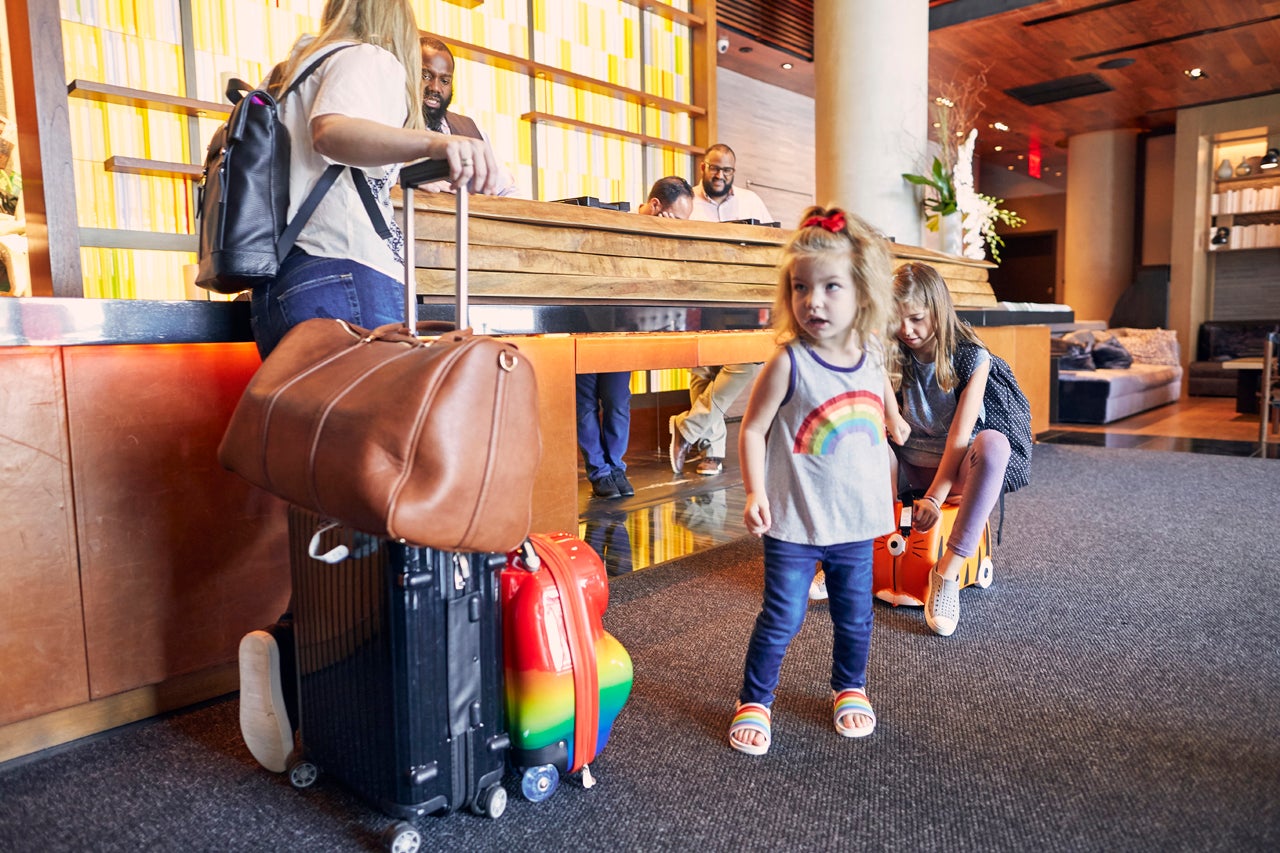
Get Global Entry for each family member
Unlike TSA PreCheck, which allows kids to travel with an eligible adult until they turn 18 (in most cases), anyone wishing to use Global Entry to expedite reentry into the U.S. needs to apply for the program.
Global Entry can save valuable time spent waiting in line. However, you’ll need to apply well in advance of your trip so you have time to submit your application, complete an in-person interview and await approval.
Similar to TSA PreCheck, you can use a credit card that will reimburse your child’s Global Entry application fee.
Try out the games built into many spaces
It’s easy to miss, but many resorts, theme parks and cruise ships have a hidden layer of fun that ranges from traditional scavenger hunts to interactive activities you can unlock with an iPhone or similar device.
While the youngest travelers won’t benefit from these types of experiences, they can be fun for a variety of age ranges, especially elementary-age kids and tweens.
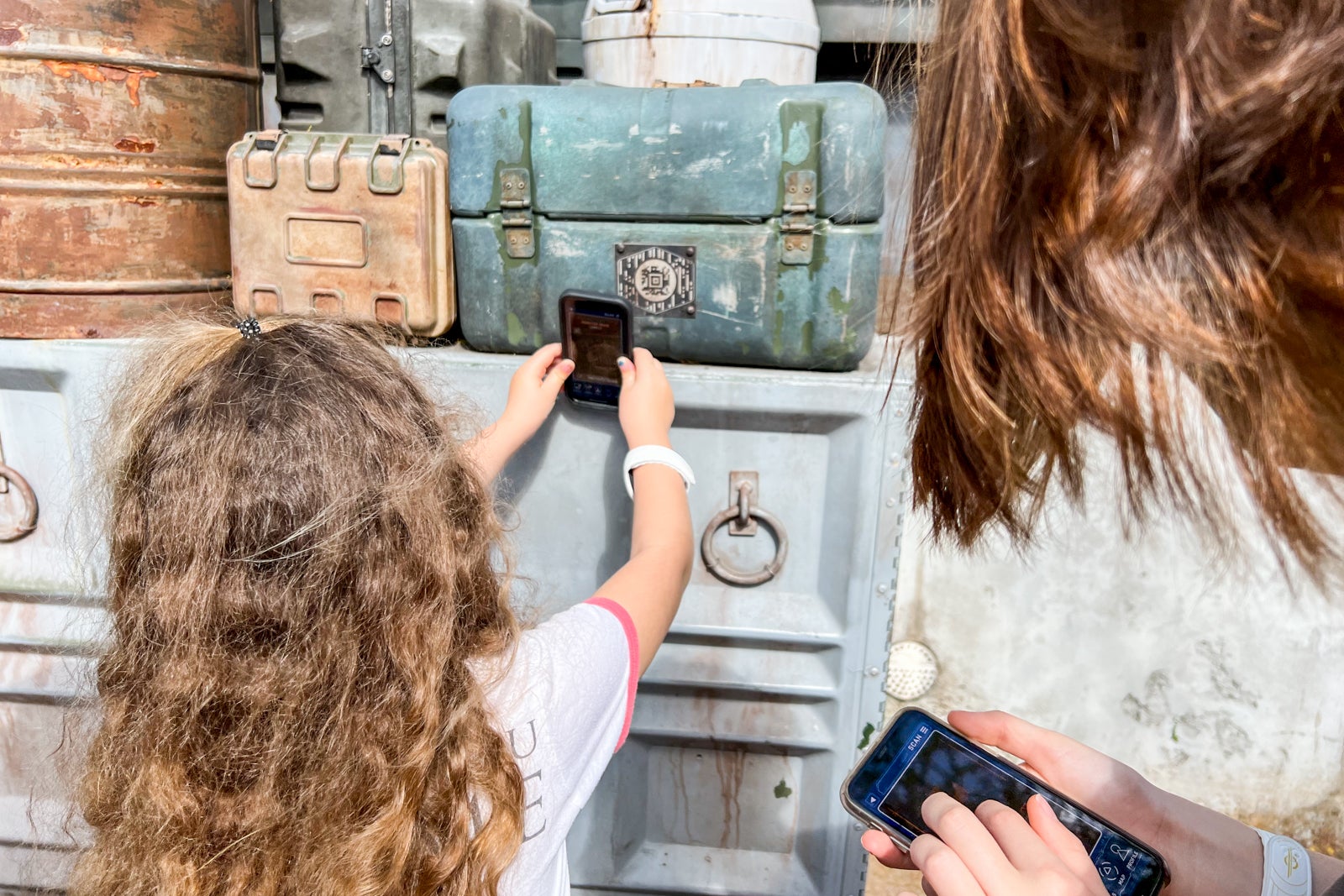
Related: Disney World rolls out all-new MagicBand+: Here’s what this wristband can do for your trip
Bottom line
Family travel has its own built-in challenges, but it also comes with immense rewards.
By knowing all the tips and tricks to traveling with kids, having the right gear with you, mapping out a game plan and having the right attitude and realistic expectations, you can have a memorable vacation every member of the family enjoys.
You may not get to do everything you want or sometimes feel like it’s more of a hassle than a vacation. However, if you’re willing to be flexible and appreciate when things go according to plan — even if the end result isn’t quite what you had hoped for — you’ll find yourself eager to book your next family trip before you have the bags unpacked and put away.
Related reading:
